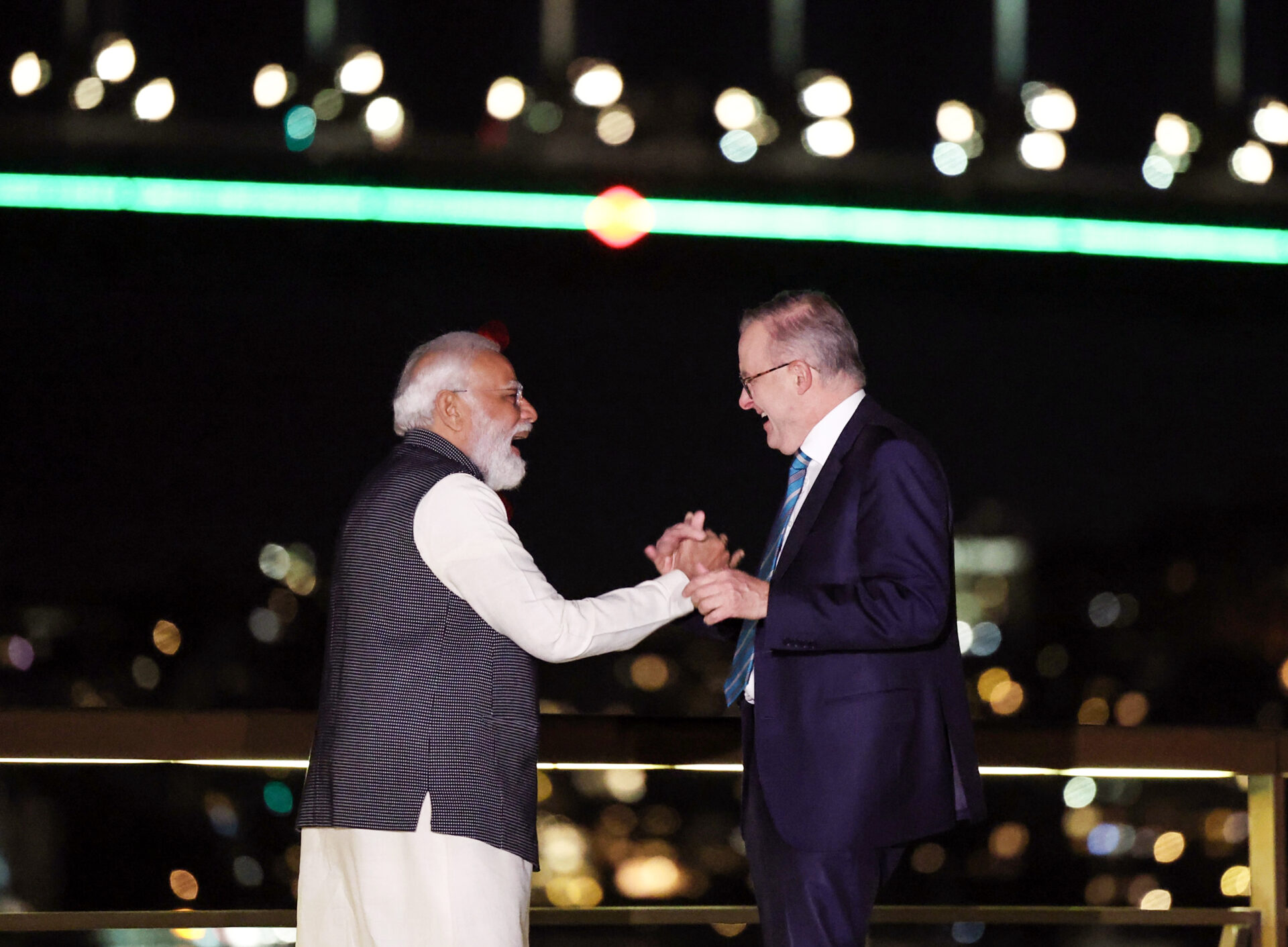Prime Minister Narendra Modi sets the stage for giving massive momentum to ensure protection and safety of temples and pilgrimage sites abroad under comprehensive ‘cultural diplomacy’.
NEW DELHI: Prime Minister Narendra Modi’s tough-talk against incidents of temple vandalism in Australia is part of his government’s “larger strategy” not only to ensure protection of all pilgrimage sites and temples of India abroad but also to build pressure on the foreign countries across the globe not to allow anti-India activities to take place on their soil. PM Modi’s remark, “Attack on pilgrimage sites is not acceptable”, was, in fact, a strong message not only for Australia but also for the entire global community. “With this, the PM has set the stage for giving fresh momentum to “cultural diplomacy” aimed at ensuring frequent visits of foreign dignitaries, leaders and diplomats to temples abroad. As part of the strategy, review of India’s pilgrimage sites in foreign countries will be carried out from time to time, during which security and other aspects like approach of the local government will be looked into,” a diplomatic source told The Sunday Guardian. “Suggestions will be given through diplomatic channels to the countries wherever necessary,” a source added. PM Modi will more frequently discuss the issues related to temples during his bilateral meetings with the world leaders.
“What also needs to be ensured is that the Indian cultural heritage and related aspects are also included in the public discourse abroad,” a sources said. “I want to tell you that when you talk about our rich culture and tradition, don’t be shy or submissive, speak with courage. The world listens to me. The world agrees with me when I say that an attack on our pilgrimage sites is not acceptable.”
These remarks made by PM Modi when he came back to Delhi after visiting Japan, Papua New Guinea and Australia are seen by diplomats as a “guiding line for the diplomatic task on cultural diplomacy”.
“Increasing the connection with the local population and administration through cultural diplomacy will be a right step in the direction of countering anti-India elements like pro-Khalistan elements on foreign soil,” a so=urce pointed out. According to sources, the list of the various religious places and pilgrimage sites of India in foreign countries are being reviewed at the Ministry of External Affairs (MEA) under the close supervision of External Affairs Minister S. Jaishankar. Diplomats posted in various countries including the US, the UK, Australia, New Zealand, Arab nations, Southeast Asian countries, etc. have been asked to share updates on the sites, sources told The Sunday Guardian.
Ambassadors and diplomats from over 30 countries on Thursday (25 May) visited the under-construction site of the BAPS Hindu temple in Abu Dhabi—the first traditional Hindu stone temple in the Middle East. These envoys visited the temple to inspect its progress and promote a dialogue of hope, harmony and humanity. The envoys and mission representatives from the Philippines, Bangladesh, Sri Lanka, Afghanistan, Japan, Indonesia, Israel, Brazil, Belgium, New Zealand, Canada and Nigeria were among those who visited the temple. The diplomats attended the gathering of the Bochasanwasi Shri Akshar Purushottam Swaminarayan Sanstha (BAPS) temple on Thursday, on a special invite by the Ambassador of India to the UAE, Sunjay Sudhir. Sudhir briefed the ambassadors and their families on the temple’s progress since the laying of its foundation stone by Prime Minister Narendra Modi in 2018. Jaishankar had visited the site and described it as “a symbol of peace, tolerance and harmony.”
“The temples in various countries will be witnessing more such visits of diplomats and world leaders. The Modi government has intensified its efforts to ensure that top leaders of different countries visit the temples and other pilgrimage sites frequently,” said diplomatic officials familiar with the developments.
In this context, Jaishankar’s remarks made in the past are quite significant, “The cultural diplomacy of the Modi government is centred around restoring our rich traditions for the benefit of the world and a truly democratic and pluralistic world order must see a full expression of India’s heritage, abroad as much as at home.”
“In fact, right from day one, PM Modi has been keen to ensure that the religious sites across the world are safe and protected,” said an official. It was the result of PM Modi-led cultural diplomacy that the famous Hindu temple in Dhaka, which was destroyed by Pakistani forces in 1971, was renovated quickly. Ram Nath Kovind, then the President of India, had inaugurated the renovated temple.
“PM Modi arranged for 55 idols, scriptures and paintings to be brought back from various foreign countries. Idol of Goddess Annapurna stolen and taken to Canada about 100 years back was brought back to India and placed in Kashi Vishwanath temple,” said officials. Regular updates on Mahalakshmi Mandir being built in New Zealand are taken by the government, sources said. “We are closely following the construction of a Hindu Mandir in Berlin, Germany,” an official said.

